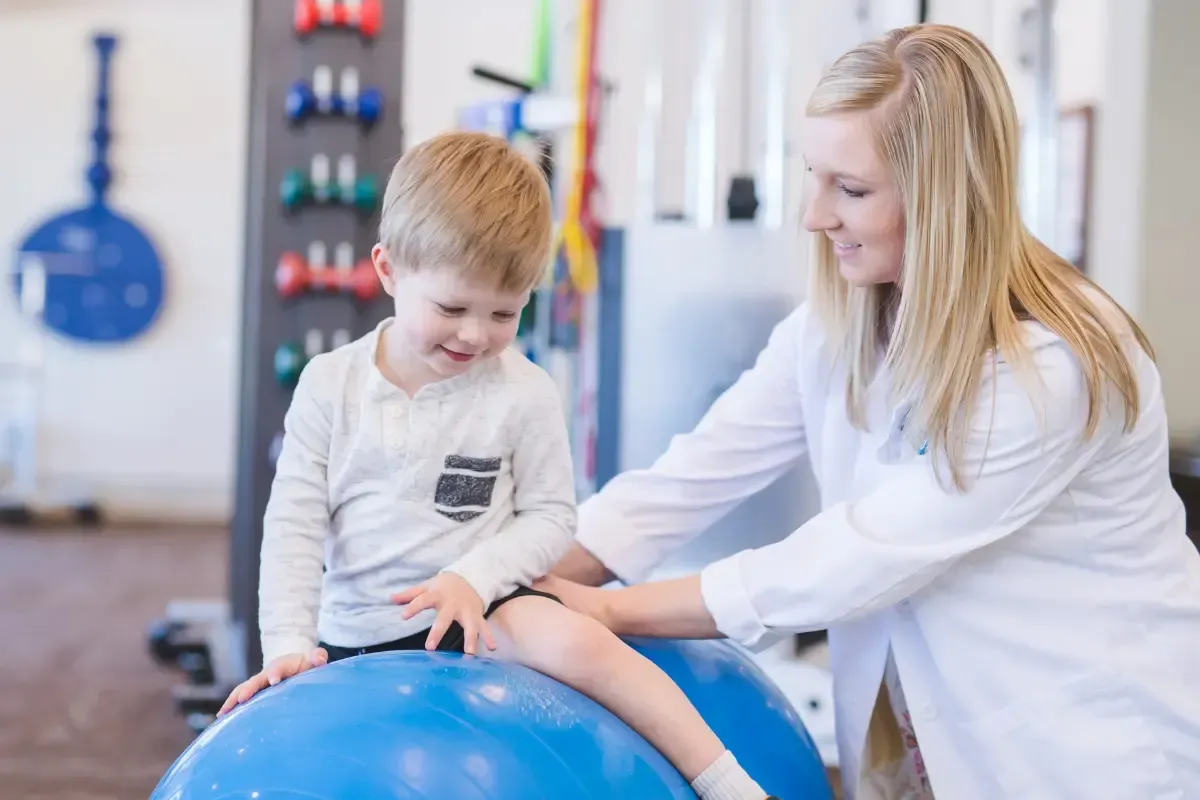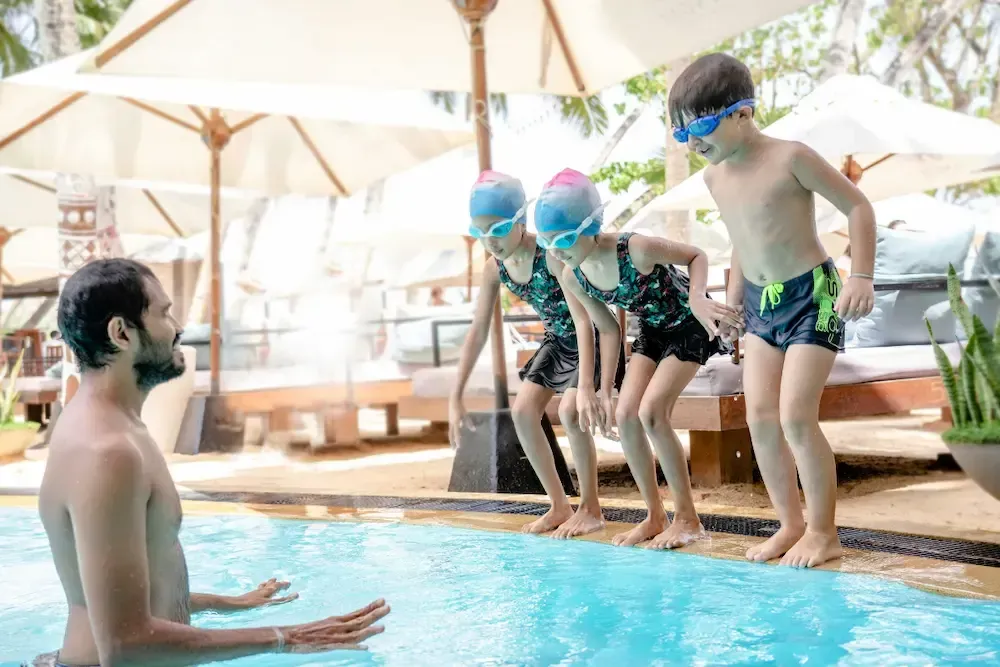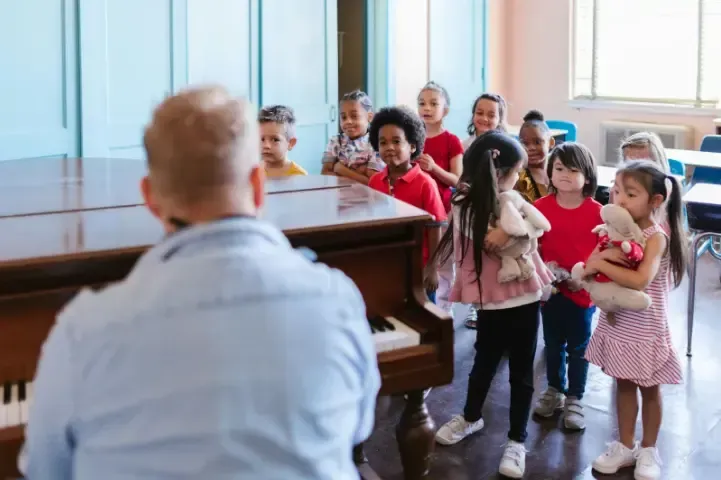18mth-2years +
Living with a 2 year old can be challenging enough let alone trying to get them to do what you want when you want them too in the allocated 30 minute time-slot that is their swim lesson. Teaching swimming since 1998 has allowed me to study the characteristics of the different age groups, their progression in swimming and how their physical and mental development can play a part in this. One of these changes occurs around the age of 2. Your child will become difficult to handle and sometimes seem like they are not being compliant or even willing to participate.
When the change will occur?
One of the major changes in your child's development both in swimming and in life will occur around the age of 2 years. Although if your child has started swimming under the age of 6 months this development stage may occur around 18 months. Babies that begin their aquatic activities at an early age are usually ahead in mental and physical development. We call this the sneak attack and it can catch parents off guard.

Understanding What To Look For
When swimming with your 2 or almost 2 year old it is very important that you understand the mental development your child is going through at this stage. Around this age your babies brain is developing so quickly their emotions and bodies have trouble keeping up. Children around this age will start to develop a sense of consequence; they are now starting to understand there is a reaction for every action. Before this age the understanding of a reaction is usually not present and they are quiet happy to jump off things and try activities that can seem daring or crazy (seem to have no fear). Children are only born with 2 fears, the fear of falling and a fear of loud noises all other fears are learnt and usually come into play around the age of 2. Sometimes your child will show their fear by saying or acting like they do not like their swimming.
If your child has hit this stage in their lesson you will notice that they are less willing to try things that may cause harm or they do not have full control over. This is mainly evident when your child goes to jump in from the wall, where they used to do this quiet easily and without prompting they now hesitate and ask for help or even stop, sit to slide in. Another example would be using equipment that makes your child feel unsteady (floatation devises or standing on mats). They may start to refuse to participate or say that they want to do something else other than what is being asked. You will know your child has hit this stage when they start to ask for your help doing activities they used to do easily by themselves. Asking for help does not have to be verbal you will be able to tell by their body language and their facial expressions. Sometimes just a light touch or holding of one finger for a while may be all they need. Talk them through what you are going to do to help them and then ensure you do as you say you will for a quick progression back to comfort.
Tips on how to deal with the stage
During this stage it is extremely important that you do not mistake this behaviour for being naughty defiant. You must always support and never force. To support your child through this phase and ensure they get over it quickly take a few steps back for a couple of weeks. Make the jumps smaller or allow them to sit for a bit to regain their confidence and then move back to standing. During this stage children can also act as if they do not like their swimming any more. Remember that children will cut of their nose to spite their face to push the limits or they may just be frightened and this is the way they are showing you or trying to communicate this to you. Use toys to distract from their brain working over time thinking of what may happen. If they want to get to a toy they will usually give it a go to get there or get the reward.
It is also vital to do what you say you must never ever trick your child into doing something when they are in this stage of development; this can cause a break in trust and will make the phase last for a lot longer. Give your child time to regain the confidence in their own ability and you will find their progression will start to take off once again.
Children this age learn through play so allow them to explore their surroundings and try things on their own. Be there for support but ensure you do not do these things for them if they feel they can achieve it on their own. Try not to argue with your child, remember your lesson is only 30 minutes and it is extremely hard to win a power struggle in that time. Instead compromise “if you do this we can do this the 2nd this is usually something they want to do). There is never any issue with using the toys and props to encourage your child to participate and do what you want when you want them to.
For your child's swimming progression it will be extremely important that you help them through this stage as this is also the age when the brain starts to cull pathways that are not being used or practiced.
Surprisingly, the brain of a 2-year-old has trillions of connections double the number that an adult has! The brain grows connections in response to all kinds of input in order to be adaptable and survive. Over time, certain connections are used again and again while others fall by the wayside.
This normal process, called
neural pruning, explains why it's easiest for a child to learn the precise accent of a language while very young. If the brain isn't exposed to that language regularly, certain synapses wither away and the brain is no longer able to hear or form certain sounds as easily. Stopping at this stage causes the vital swimming skills they have mastered to regress and upon return they will be back to square one.
Neural pruning also explains why routine and repetition are so important to a young child. They facilitate learning and help the brain understand what's important. So to avoid the pathways for swimming, movement and comfort in the water to be 'pruned' continuation of practice is required even though they have hit a minor bump in the road. You will find if you just pull back but continue to relax and have fun in the water your little cherub will be back to the level they where before they hit this stage in no time.
Hopefully this article will help you understand this is a normal stage that all children will go through. For personal tips on how to guide your little one through please feel free to ask your friendly instructor or supervisor on deck.




